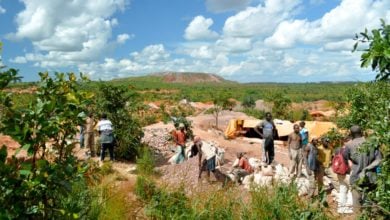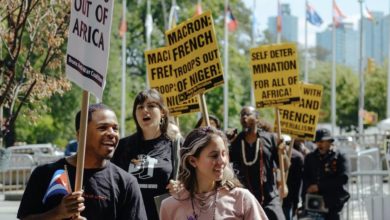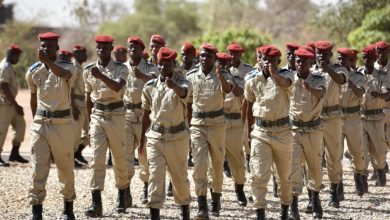The United Nations Security Council passed a resolution on Aug. 31 calling for the establishment of a peacekeeping force in the Darfur region of Sudan.
The resolution passed was in direct opposition to the Sudanese government’s stated wishes. On Sept. 1, the
|
The UN resolution makes way for up to 22,500 UN troops and police officers to supplement and then take over the 7,000-strong African Union force currently in Sudan. The African Union’s mandate expires on Sept. 30.
The UN resolution was drafted and pushed largely by the United States and Britain. John Bolton, U.S. ambassador to the United Nations, claimed that the Security Council did not need Sudan’s permission to pass the resolution—a clear sign of disdain for Sudan’s sovereignty. Britain is the former colonial power in Sudan. It was responsible for splitting the country into northern and southern sections, which laid the basis for civil war and fighting within the country.
The U.S. government has used the United Nations on many occasions as a cover for its own military aims. A brief look at these interventions throughout history does not bode well for Sudan. Korea is still divided today due to the U.S.-backed UN invasion in 1950. Iraq is also a stark reminder of the United Nations’ true role and how the U.S. government uses the UN to serve its own ends—the decade of sanctions, bombardment, and disarmament of the Iraqi people would have been impossible without UN cover.
The UN’s “humanitarian intervention” currently in the works should be viewed in light of other such “peacekeeping actions.” The United States tried something similar in 1993 with Somalia, using the cover of humanitarian intervention to deploy 25,000 of its own troops under U.S. command. The resulting action led to the deaths of many thousands of Somalis before they kicked out the foreign occupiers.
The conflict in Sudan has been misrepresented in the media as an Arab-African conflict. But the main division in Darfur is economic: between nomadic herders and subsistence farmers. The vast majority of people in Darfur are Muslim and are Black. But these conflicts do not explain how struggles for land and water could mushroom into civil war. That was possible only with the intervention of the United States and other imperialist countries.
Sudan is still a developing country struggling to overcome a long legacy of underdevelopment due to colonialism and imperialism. Sudan needs resources and reparations, not intervention by foreign powers more interested in its mineral wealth than the well-being of its people. Sudan has been a target of U.S. imperialism in particular because of its independent and anti-imperialist stance, and recently because of the growing ties between China and Sudan’s oil-producing industry.
The Sudanese government has pursued a resolution to the conflict in Darfur and elsewhere in the country. In May, the government signed a peace agreement with the main rebel group, the Sudanese Liberation Army. But smaller rebel groups splintered off and refused to sign the peace deal, and have continued to attack the government.
In response to the UN resolution, Sudan is planning a military operation of its own to pacify the existing rebels. Whether this will lead to peace and stability for the country is unclear, but the intervention of foreign forces will do nothing to bring the Sudanese people justice.






